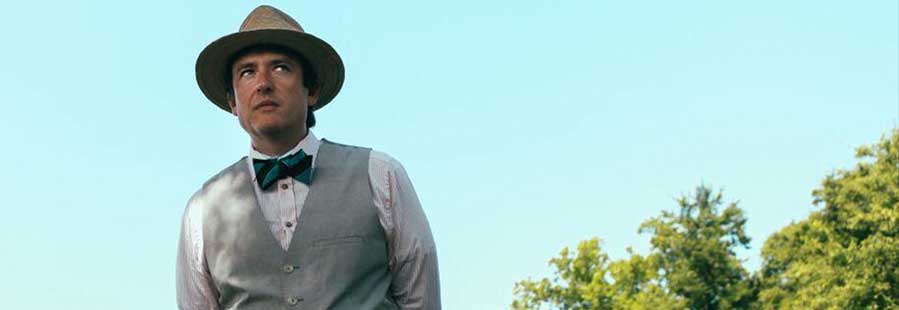
Tell us about your tour vehicle.
I don’t own a touring vehicle anymore and choose instead to rent. But for many years I did own a white van with very heavy but removable seats, cat gray carpet, and poor cab lighting, which is perhaps why I’m committed to rentals from now on. My van was made in Korea during the war to rid Saddam of chemical weapons. It sported both a cassette and a cd player, which I quite liked since most people from my era still have occasion to listen to something that’s covered in Magic Marker ink – if not for old times sake then to acknowledge at least a few things have changed since 1986.
Eventually that van went kaput after 120,000 miles (I put on a modest 70K). Car Max offered me $75 for it (I was going to offer them $50) – an uptick from what they paid for my previous vehicle, a Volvo, whose only redeeming quality was the green face of the cd player which had an animated dolphin splashing to the music. When that was stolen, the Volvo was dead to me.
Anyway, the van from Korea was, for the most part, reliable enough. But it did have a spectacular breakdown in the great city of Louisville when a vital $175 part in the steering column broke which resulted in the steering wheel spinning on its axis, unable to turn the wheel. (“No way!” said the bass player. “Way!” I replied). I sensed something was awry on the highway. The steering seemed strange so I resolved to not turn the wheel too hard. It finally broke as I was parallel parking for dinner, of course.
How do you eat cheaply and/or healthy while on tour?
Every town has a health food store with overpriced bags of nuts and nice unshaven young people behind the counter. When such places are not possible, one must pick the fast food place that leaves you with the greatest satisfaction. In the view of the WPA Ballclub, this would be Sonic but we tend to stay away from Sonics that don’t see a lot of traffic. Idle hands make monsters of food workers. Invariably, family restaurants – Greek, Indian, Thai – are best as they are home cooked meals. You always want to eat at a busy restaurant that depends on their reputation, not their location.
How many strings do you break in a typical year? How much does it cost to replace them?
I don’t break many strings on the road and I think that is primarily because I make sure my instruments are set up properly. Go to the picky-est person in town, preferably someone who deals with good instruments all day long. Make friends, learn how they do what they do, follow their advice, and pay the person well for their troubles. A well set up instrument will save you lots of heartache.
Where do you rehearse?
My rehearsal space is an American garage. I’ve had lots of them. Some with carpet, all with spiders, and even some with light. A good rehearsal space is filthy, smelly, a pit of isolation. Fresh things like coffee, unopened bags of chips, and light bulbs seem out of place there. A person can get so used to the filth that one can delude themselves into thinking some parts of the carpet are “cleaner” than others. Crazy experiences? Thinking that we had a chance for a good performance if we rehearsed in such a place. In fact, thinking that we had any chance at all. Can’t get any more crazy than that.
What was the title and a sample lyric from the first song that you wrote?
Goin’ way down to Memphis, baby that’s where I’m bound. When I make my fortune, look me up when you come to town. ©Burch
Describe your first gig.
My first gig was being invited on stage with Les McCaan and his band. I think I hit a cowbell and a conga. I was petrified. Though it’s been 45 years, I feel pretty good they might call me back.
What was your last day job? What was your favorite day job?
I should not reveal my current job but it is relatively cerebral, predictable, manageable, and adult. I smuggle myself through. But I don’t feel bad because the bassist for Let’s Active is not far away and neither are several other musical heroes who are just like all of us – hoping someone might think of us now and then. My favorite day job has been the too-rare times when someone asks me to come to the studio and play guitar, play drums, or help them engineer a record. The best feeling of all is going to the studio for the day.
How has your music-related income changed over the past 5-10 years? What do you expect it to look like 5-10 years from now?
My musical income can best be described by my friend drummer Larry Larue’s description of the last series of gigs he had. “Well,” said Larry, who has played with Emmylou Harris and Alison Krauss, “it ranged from the ridiculous to the sublime.” I feel confident good things are headed my way, followed shortly thereafter by a big boom and lights out.
What one thing do you know now that you had wished you knew when you started your career in music?
Sadly, even if I were told, I wouldn’t have believed it and just kept going.
